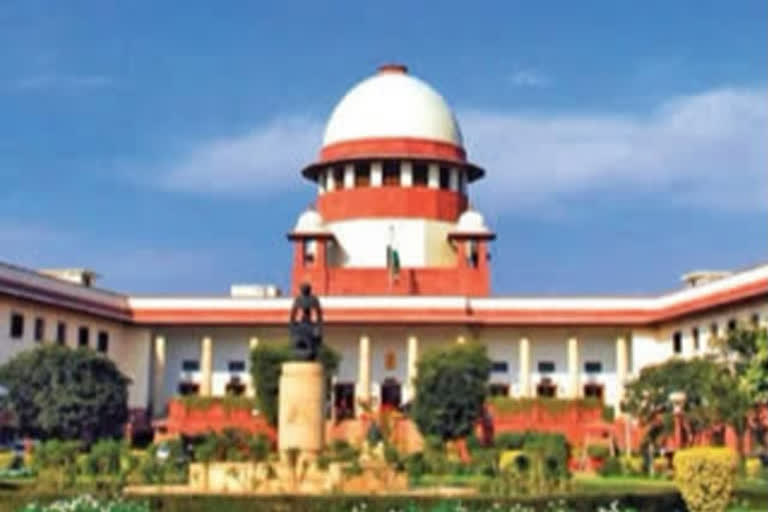New Delhi: Job appointment of a dependent on compassionate grounds after the death of a government employee is not automatic but subject to strict scrutiny of various parameters, including financial position, economic dependence on the deceased and avocation of other family members, the Supreme Court said on Thursday.
A bench of Justices Hemant Gupta and V Ramasubramanian said if compassionate appointment is one of the conditions of service and is made automatic upon the death of an employee in harness without any kind of scrutiny whatsoever, the same would be treated as a vested right in law.
"But it is not so. Appointment on compassionate grounds is not automatic, but subject to strict scrutiny of various parameters including the financial position of the family, the economic dependence of the family upon the deceased employee and the avocation of the other members of the family. Therefore, no one can claim to have a vested right for appointment on compassionate grounds," the bench said.
The top court's observation came on an appeal filed by the Department of Education, Karnataka against an order passed by Karnataka State Administrative Tribunal which was also confirmed by the high court, directing it to consider the case of a person, named Bheemesh, for appointment on compassionate grounds.
Bheemesh's sister, who was employed as Assistant Teacher in a government school, died in harness on December 8, 2010, leaving behind her surviving mother, two brothers and two sisters.
Also Read: Hyderabad Police organises job mela for women, nearly 400 women expected to get jobs
Claiming that the deceased was unmarried and that the mother, two brothers and two sisters were entirely dependent on her income, Bheemesh sought appointment on compassionate grounds.
The claim was rejected by the competent authority in 2012 on the ground that the amendment made to the Karnataka Civil Services (Appointment on Compassionate Grounds) Rules, extending the benefit of compassionate appointment to the unmarried dependant brother of an unmarried female employee, will not be applicable in this case.
Aggrieved by the order of rejection, Bheemesh moved the Karnataka State Administrative Tribunal which allowed his plea in 2017 on the ground that the amendment made to the Rules on June 20, 2012 would apply retrospectively covering his case, though his sister died in harness in 2010.
Challenging the order, the state moved the Karnataka High Court which was dismissed.
Dealing with the appeal, the apex court said that the interpretation as to the applicability of a modified Scheme should depend only upon a determinate and fixed criteria such as the date of death and not an indeterminate and variable factor.
"Coming to the case on hand, the employee died on December 8, 2010 and the amendment to the Rules was proposed by way of a draft notification on June 20, 2012. The final notification was issued on July 11, 2012.
"Merely because the application for appointment was taken up for consideration after the issue of the amendment, the respondent could not have sought the benefit of the amendment," the bench said while setting aside the order of the high court.
PTI



